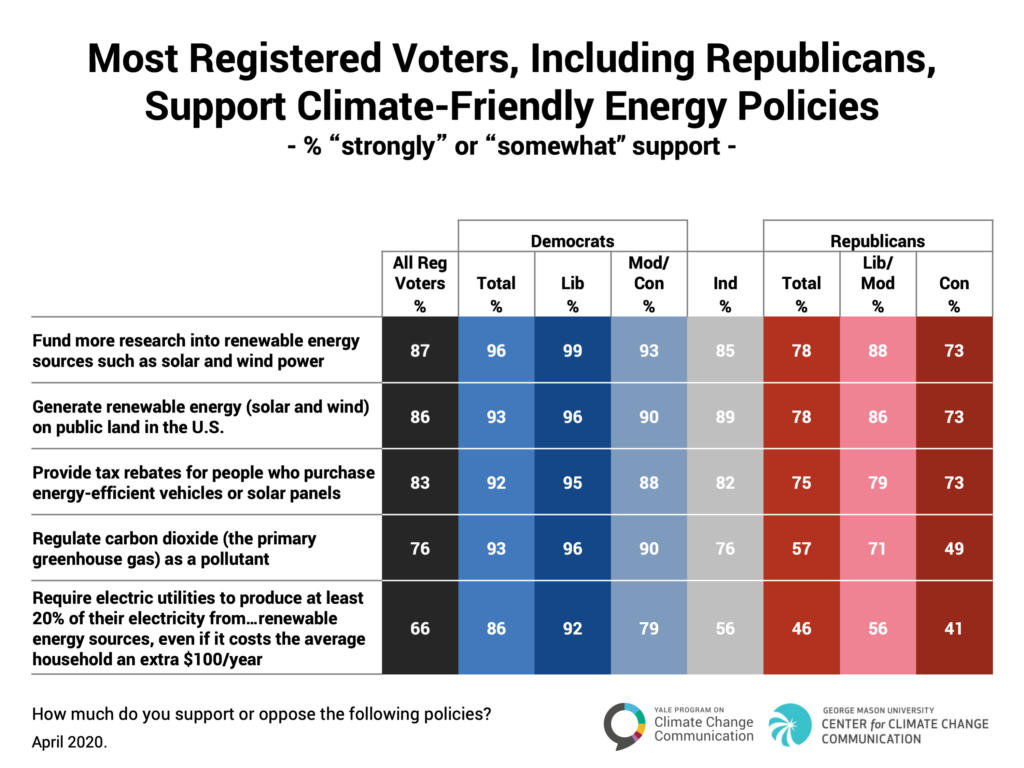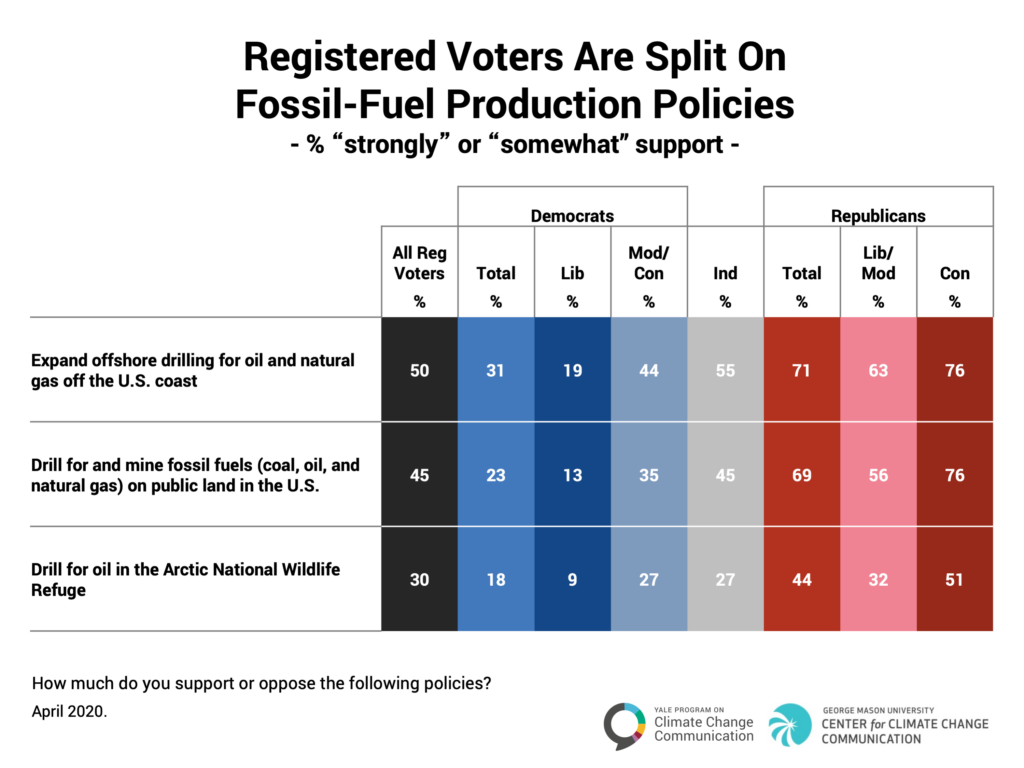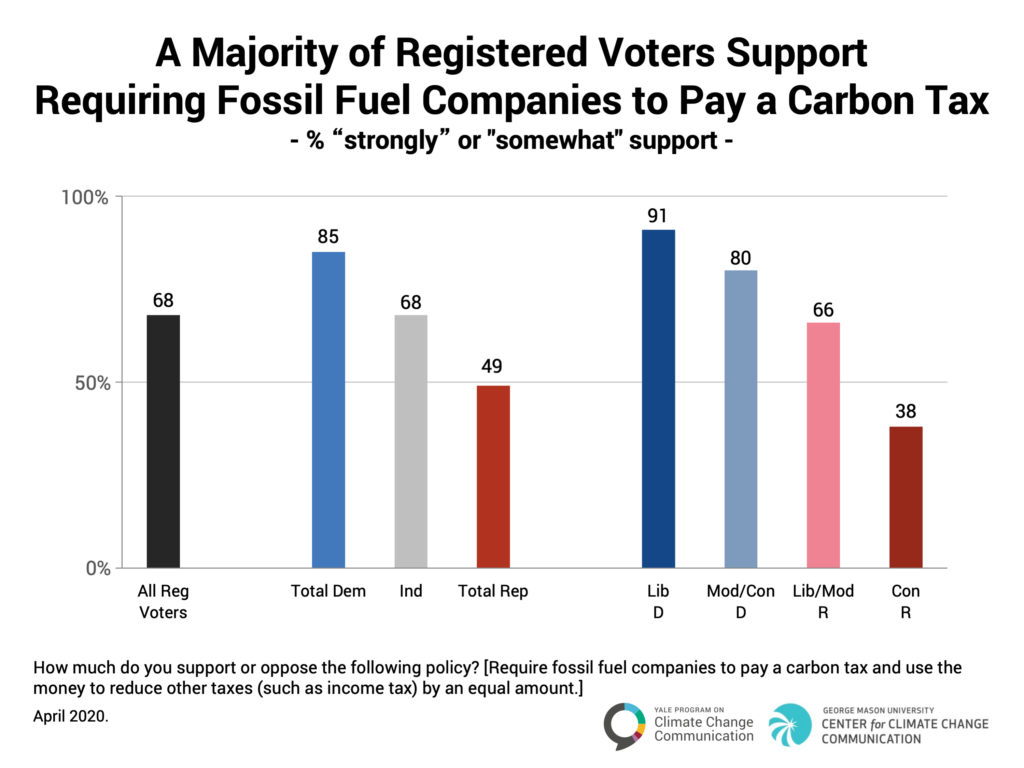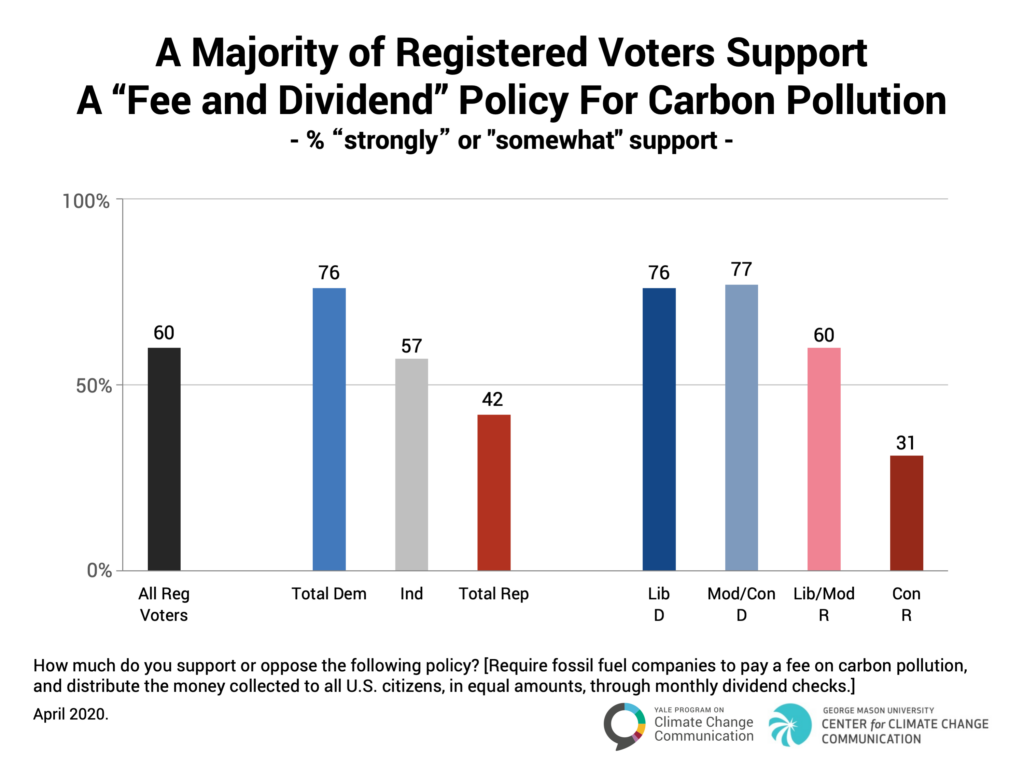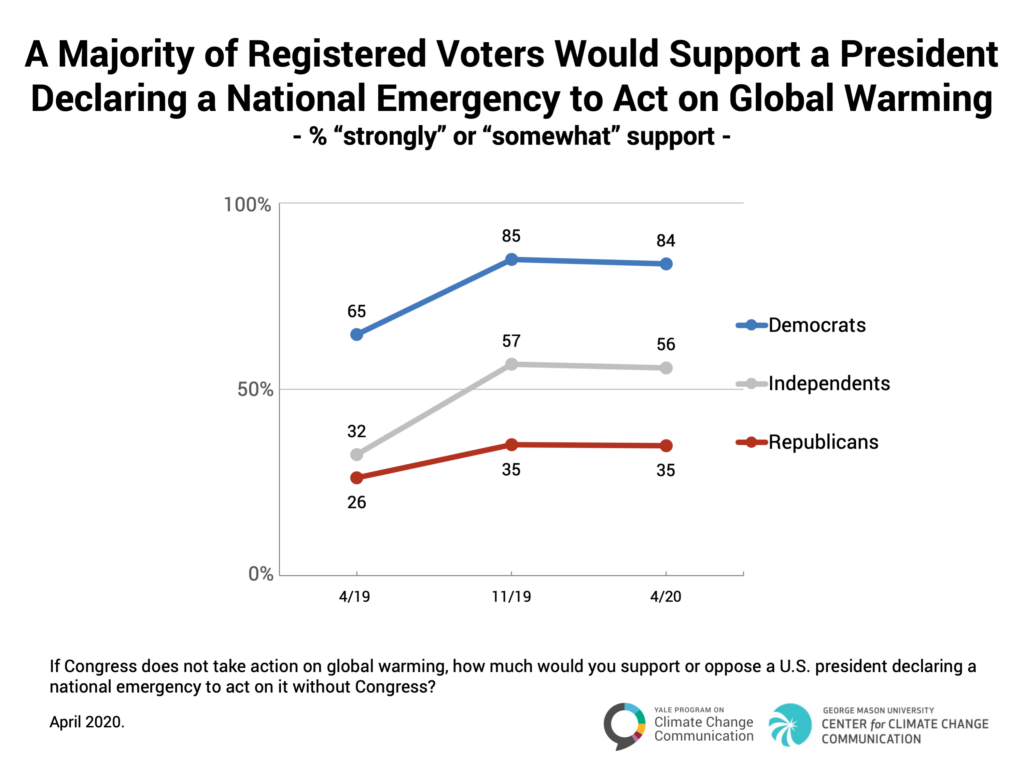Report · Jun 4, 2020
Politics & Global Warming, April 2020
By Anthony Leiserowitz, Edward Maibach, Seth Rosenthal, John Kotcher, Matthew Ballew, Parrish Bergquist, Abel Gustafson, Matthew Goldberg and Xinran Wang
Filed under: Beliefs & Attitudes, Behaviors & Actions and Policy & Politics
3. Support for Policies to Address the Pollution that Causes Global Warming
3.1. Most registered voters, including Republicans, support climate-friendly energy policies.
Registered voters across the political spectrum support several other energy policies designed to reduce carbon pollution and fossil fuel dependence and to promote clean energy, including:
- Funding more research into renewable energy sources: 87% of registered voters, 96% of Democrats, 85% of Independents, and 78% of Republicans.
- Generating renewable energy (solar and wind) on public land in the U.S.: 86% of registered voters, 93% of Democrats, 89% of Independents, and 78% of Republicans.
- Providing tax rebates to people who purchase energy-efficient vehicles or solar panels: 83% of registered voters, 92% of Democrats, 82% of Independents, and 75% of Republicans.
- Regulating carbon dioxide as a pollutant: 76% of registered voters, 93% of Democrats, 76% of Independents, and 57% of Republicans.
- Requiring electric utilities to produce at least 20% of their electricity from renewable energy sources, even if it costs the average household an extra $100 a year: 66% of registered voters, 86% of Democrats, 56% of Independents, but fewer than half of Republicans (46%).
Nearly three in four conservative Republicans support funding more research into renewable energy (73%), generating renewable energy on public land (73%), and providing tax rebates for purchasing energy-efficient vehicles or solar panels (73%), and about half (49%) support regulating carbon dioxide.
3.2. Registered voters are split on fossil-fuel production policies.
Half of registered voters support expanding offshore drilling for oil and natural gas off the U.S. coast (50%), and more than four in ten support drilling and mining for fossil fuels on public land in the U.S. (45%). Majorities of Republicans (71%) and Independents (55%) support expanding offshore drilling and a majority of Republicans support drilling and mining on public lands (69%). Fewer Democrats support these policies.
By contrast, fewer registered voters (30%) support drilling for oil in Alaska’s Arctic National Wildlife Refuge (ANWR), while a large majority (70%) oppose it (see Data Tables, p. 64). About half of conservative Republicans (51%) support this policy, but liberal/moderate Republicans (32%), Independents (27%), and Democrats (18%) are much less likely to support drilling in ANWR.
3.3. A majority of registered voters support requiring fossil fuel companies to pay a carbon tax.
A policy for mitigating global warming currently under consideration is often referred to as a “revenue-neutral carbon tax.” It would require fossil fuel companies to pay a tax on the carbon pollution they produce, and would use that money to reduce other taxes (such as the Federal income tax) by an equal amount. About two in three registered voters (68%) support this plan.
A large majority of Democrats (85%) and a majority of Independents (68%) support requiring fossil fuel companies to pay a carbon tax. About half of Republicans (49%), including two in three liberal/moderate Republicans (66%), but only 38% of conservative Republicans, support such a tax.
3.4. A majority of registered voters support a “Fee and Dividend” policy for carbon pollution.
A proposal similar to a “revenue-neutral carbon tax” (see previous section) is a “Fee and Dividend” policyhttps://citizensclimatelobby.org/carbon-fee-and-dividend/ in which fossil fuel companies would pay a fee on the carbon pollution they produce, and all the money collected would be distributed to all U.S. citizens, in equal amounts, through monthly dividend checks.
Six in ten registered voters (60%) support a Fee and Dividend plan, including a majority of Democrats (76%) and 57% of Independents. About four in ten Republicans (42%) support the plan, including 60% of liberal/moderate Republicans but only 31% of conservative Republicans.
3.5. A majority of registered voters would support a president declaring a national emergency to act on global warming.
About six in ten registered voters (59%) would “strongly” or “somewhat” support a U.S. president declaring global warming a national emergency to act on it without Congress. This reflects a 14 percentage-point increase since we first asked this question one year ago (in April 2019). This action has the support of a large majority of Democrats (84%; a 19-point increase over the past year), about half of Independents (56%; a 24-point increase), and about one in three Republicans (35%; a nine-point increase).
